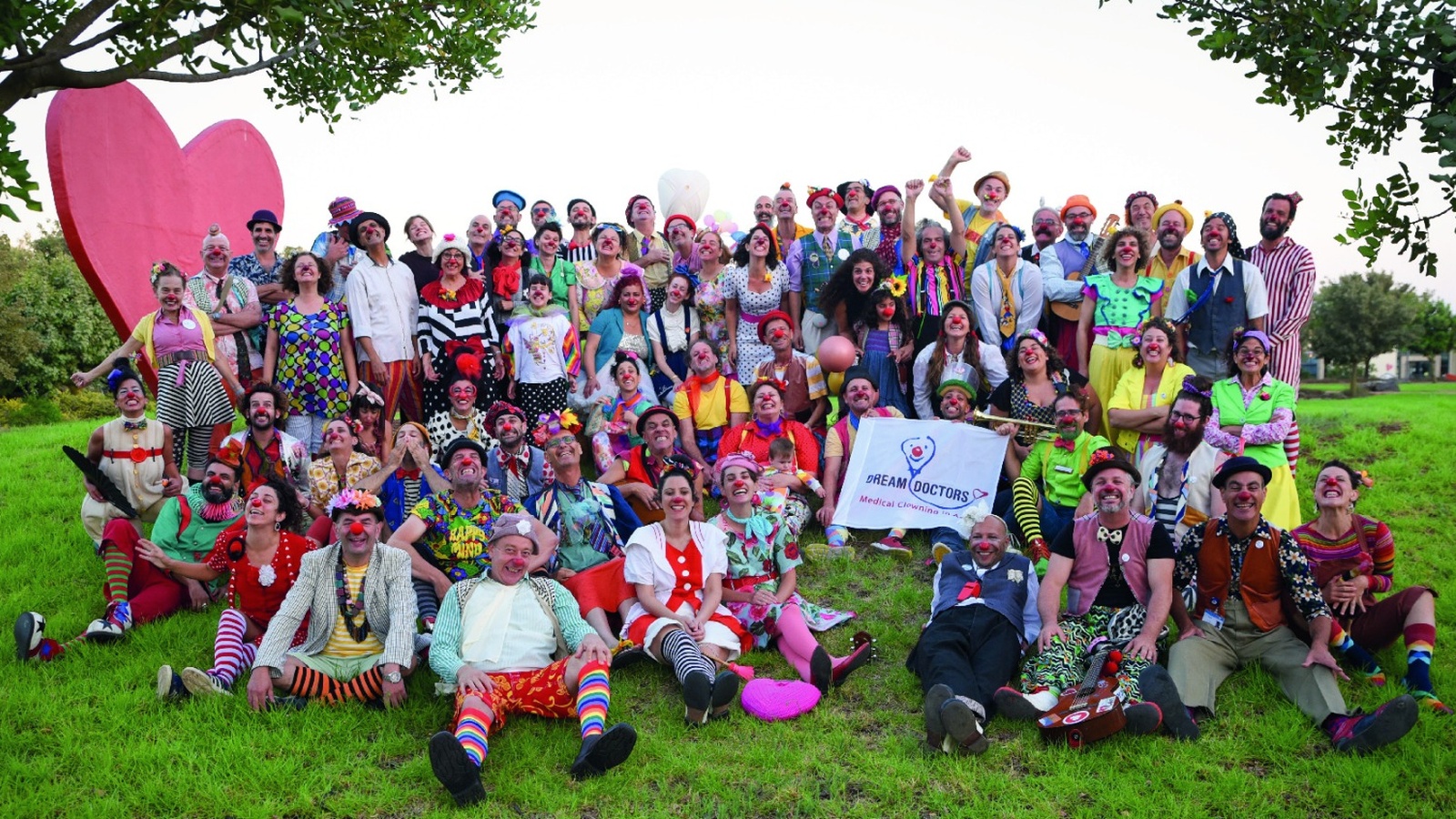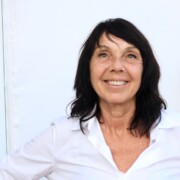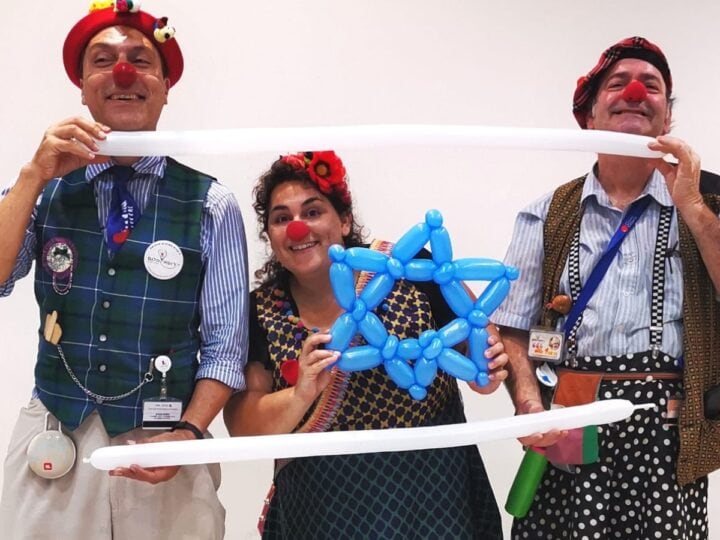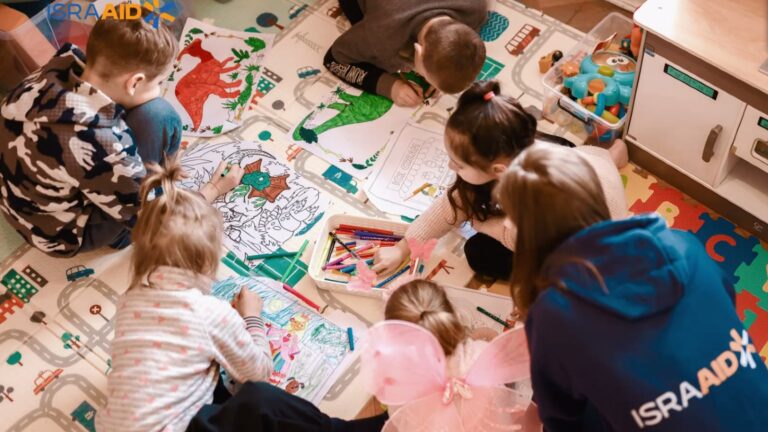After testing and categorizing the skills of medical clowns, Tel Aviv University (TAU) researchers found that their importance is far above just getting patients into a better mood.
They help patients and their families, they assist the medical team and make it easier for patients to cooperate with treatment.
“The moment the clown enters the room, they form a bond with the patients, strengthen them, and give them power and status within the medical system,” said study co-lead, TAU Department of Medical Education Prof. Ornit Karnieli-Miller.
Published in the medical journal Qualitative Health Research, the study identified skills in medical clowns relating to relationship building; dealing with emotions and difficulties; increasing patient motivation in following treatment plan; and building patients’ sense of control and confidence.
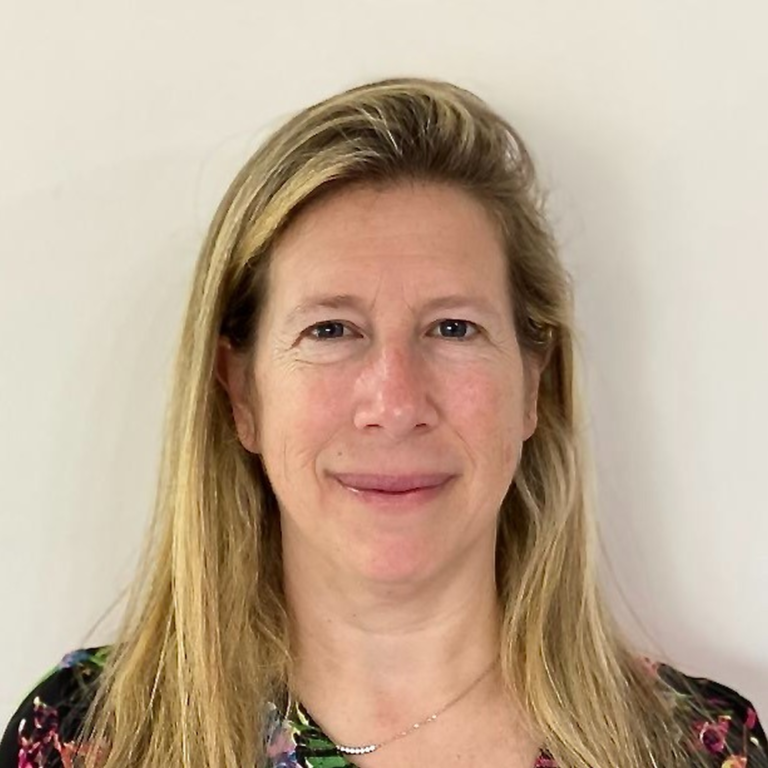
Karnieli-Miller and TAU’s Dr. Lior Rosenthal did the study in collaboration with the Israel Center for Medical Simulation at Sheba Medical Center and the Dream Doctors Project, which provides trained medical clowns to 34 Israeli hospitals and to humanitarian relief missions worldwide.
She explained that “one of the skills of medical clowns is to place themselves in the lowest position in the medical setting.”
By acting as patient advocates within the medical hierarchy of a hospital, medical clowns gives patients “power and control, including the choice of whether to allow the clown to enter the room as well as to dictate the nature of the patient’s role vis-à-vis that of the clown,” she said.
The study noted that the clowns provide a buffer, a comforting touch, soothing music, empathetic listening, or confidence-building remarks, imparting an increased sense of control, courage to face challenges and comfort expressing feelings.
Mapping the skills and goals of the medical clowns will improve the understanding of their role and “help other health professionals appreciate their work methods,” as well as the benefits of incorporating these methods into their own practices when faced with similar challenges, said Karnieli-Miller.
Fighting for Israel's truth
We cover what makes life in Israel so special — it's people. A non-profit organization, ISRAEL21c's team of journalists are committed to telling stories that humanize Israelis and show their positive impact on our world. You can bring these stories to life by making a donation of $6/month.





